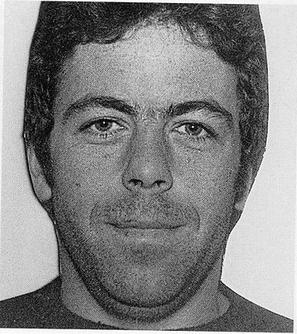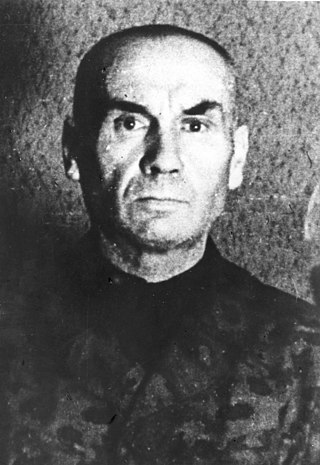
Murder is the unlawful killing of another human without justification or valid excuse, especially the unlawful killing of another human with malice aforethought. This state of mind may, depending upon the jurisdiction, distinguish murder from other forms of unlawful homicide, such as manslaughter. Manslaughter is killing committed in the absence of malice, brought about by reasonable provocation, or diminished capacity. Involuntary manslaughter, where it is recognized, is a killing that lacks all but the most attenuated guilty intent, recklessness.

A serial killer is typically a person who murders three or more persons, with the murders taking place over more than a month and including a significant period of time between them. While most authorities set a threshold of three murders, others extend it to four or lessen it to two.
Extrajudicial punishment is a punishment for an alleged crime or offense which is carried out without legal process or supervision by a court or tribunal through a legal proceeding.

The Killing Fields are a number of sites in Cambodia where collectively more than one million people were killed and buried by the Khmer Rouge regime during its rule of the country from 1975 to 1979, immediately after the end of the Cambodian Civil War (1970–1975). The mass killings were part of a broad state-sponsored genocide.

Hugh Leonard Thompson Murphy was a Northern Irish loyalist and UVF officer. As leader of the Shankill Butchers gang, Murphy was responsible for many murders, mainly of Catholic civilians, often first kidnapping and torturing his victims. Due to a lack of evidence, Murphy was never brought to trial for these killings, for which some of his followers had already received long sentences in 1979. In the summer of 1982, Murphy was released just over half-way through a 12-year sentence for other offences. He returned to the Shankill Road, where he embarked on a murder spree. Details of his movements were apparently passed by rival loyalist paramilitaries to the Provisional IRA, who shot Murphy dead that autumn.
"Big" Steve Long was an American law enforcement officer and outlaw, achieving notoriety in the Wyoming Territory during the late 1860s. He was one of the earliest examples of an Old West gunman. Because of their lawlessness, he and two half-brothers were lynched by a posse put together by a newly appointed sheriff in 1868.

Friedrich Jeckeln was a German SS commander during the Nazi era. He served as a Higher SS and Police Leader in the occupied Soviet Union during World War II. Jeckeln was the commander of one of the largest collection of Einsatzgruppen death squads and was personally responsible for ordering and organising the deaths of over 100,000 Jews, Romani and others designated by the Nazis as "undesirables". After the end of World War II in Europe, Jeckeln was convicted of war crimes by a Soviet military tribunal in Riga and executed in 1946.
Human Rights in Mexico refers to moral principles or norms that describe certain standards of human behaviour in Mexico, and are regularly protected as legal rights in municipal and international law. The problems include torture, extrajudicial killings and summary executions, police repression, sexual murder, and, more recently, news reporter assassinations.
Capital punishment is a legal penalty in Iran. Crimes punishable by death include murder; rape; child molestation; homosexuality; pedophilia; drug trafficking; armed robbery; kidnapping; terrorism; burglary; incestuous relationships; fornication; prohibited sexual relations; sodomy; sexual misconduct; prostitution; plotting to overthrow the Islamic regime; political dissidence; sabotage; arson; rebellion; apostasy; adultery; blasphemy; extortion; counterfeiting; smuggling; speculating; disrupting production; recidivist consumption of alcohol; producing or preparing food, drink, cosmetics, or sanitary items that lead to death when consumed or used; producing and publishing pornography; using pornographic materials to solicit sex; recidivist false accusation of capital sexual offenses causing execution of an innocent person; recidivist theft; certain military offenses ; "waging war against God"; "spreading corruption on Earth"; espionage; and treason. Iran carried out at least 977 executions in 2015, at least 567 executions in 2016, and at least 507 executions in 2017. In 2018 there were at least 249 executions, at least 273 in 2019, at least 246 in 2020, at least 290 in 2021, at least 553 in 2022, and at least 113 so far in 2023.
The Stoneman is a name given by the popular English-language print media of Calcutta, India to an unidentified serial killer who murdered at least 13 sleeping homeless people in Calcutta in 1989. The name is also given to the perpetrator of a similar series of murders in Mumbai from 1985 to 1988. It has been speculated that these were the work of the same person, who could have been responsible for as many as 26 murders.
The chain murders of Iran were a series of 1988–98 murders and disappearances of certain Iranian dissident intellectuals who had been critical of the Islamic Republic system. The murders and disappearances were carried out by Iranian government internal operatives, and they were referred to as "chain murders" because they appeared to be linked to each other.
The Davao Death Squad (DDS) is a vigilante group in Davao City, Philippines. The group is alleged to have conducted summary executions of street children and individuals suspected of petty crimes and drug dealing. It has been estimated that the group is responsible for the killing or disappearance of between 1,020 and 1,040 people between 1998 and 2008. As early as 2005, the US State Department had received reports of the Human Rights Commission's (HRC) investigation regarding the alleged connection of the Duterte political dynasty of Davao to the killings. Investigations by Human Rights Watch and the Philippine Commission of Human Rights (CHR) followed. The 2009 report by the CHR noted stonewalling by local police under Duterte while a leaked cable observed a lack of public outrage among Davao residents.
Václav Mrázek was a Czechoslovak serial killer who was convicted of killing at least seven people in Chomutov from 1951 to 1957. While primarily sexually-motivated, he also robbed his victims, and at trial, he was convicted of 127 total crimes. For the murders, Mrázek was hanged at the Pankrác Prison in 1957.

An extrajudicial killing is the deliberate killing of a person without the lawful authority granted by a judicial proceeding. It typically refers to government authorities, whether lawfully or unlawfully, targeting specific people for death, which in authoritarian regimes often involves political, trade union, dissident, religious and social figures. The term is typically used in situations that imply the human rights of the victims have been violated; deaths caused by legitimate warfighting or police actions are generally not included, even though military and police forces are often used for killings seen by critics as illegitimate. The label "extrajudicial killing" has also been applied to organized, lethal enforcement of extralegal social norms by non-government actors, including lynchings and honor killings.

The Orderud case was a triple murder that occurred in Norway on 22 May 1999. The victims were 47-year-old Anne Orderud Paust; her mother, 84-year-old Marie Orderud; and her father, 81-year-old Kristian Orderud, who were found shot and killed at their country estate in Sørum, Akershus.
The Broken Arrow killings took place on July 22, 2015, when five members of the Bever family were murdered in Broken Arrow, Oklahoma, United States.
Between 6 and 16 December 2021, a number of Muslim civilians were killed and injured by Anti-balaka fighters supported by government forces and Russian mercenaries in the Boyo commune, located in the Ouaka prefecture of the Central African Republic (CAR). These civilians were attacked for their alleged links with Union for Peace in the Central African Republic (UPC) rebels. The attacks are part of the larger CAR Civil War which has been ongoing since 2012.

The murders of Harry and Megan Tooze, also known as the Llanharry murders, were the high-profile killings of an elderly couple at their remote Ty Ar y Waun farm near Llanharry, Rhondda Cynon Taf, Wales, United Kingdom, on 26 July 1993. The couple were shot dead at point blank range with a shotgun in an execution-style killing, and their killer had attempted to hide their bodies in the cowshed of the farm. Their best china was found mysteriously laid out on the table in the farmhouse as if the couple were expecting a close guest, and their lunch was found cooked but not eaten on the stove. It was described by the lead detective in charge of the case as the "most baffling" case he had investigated.







